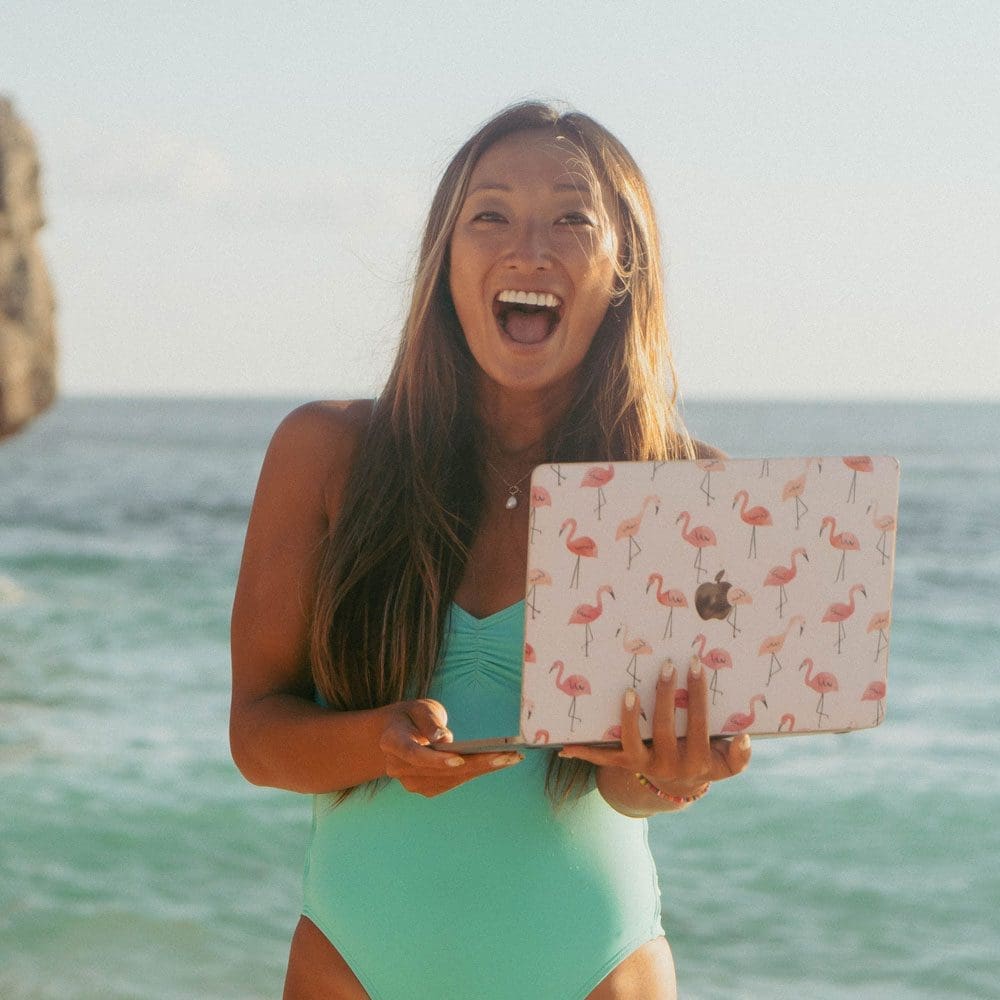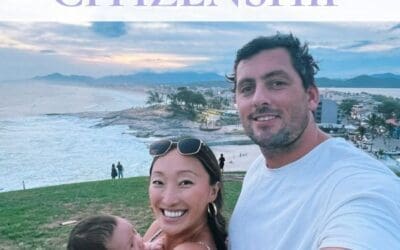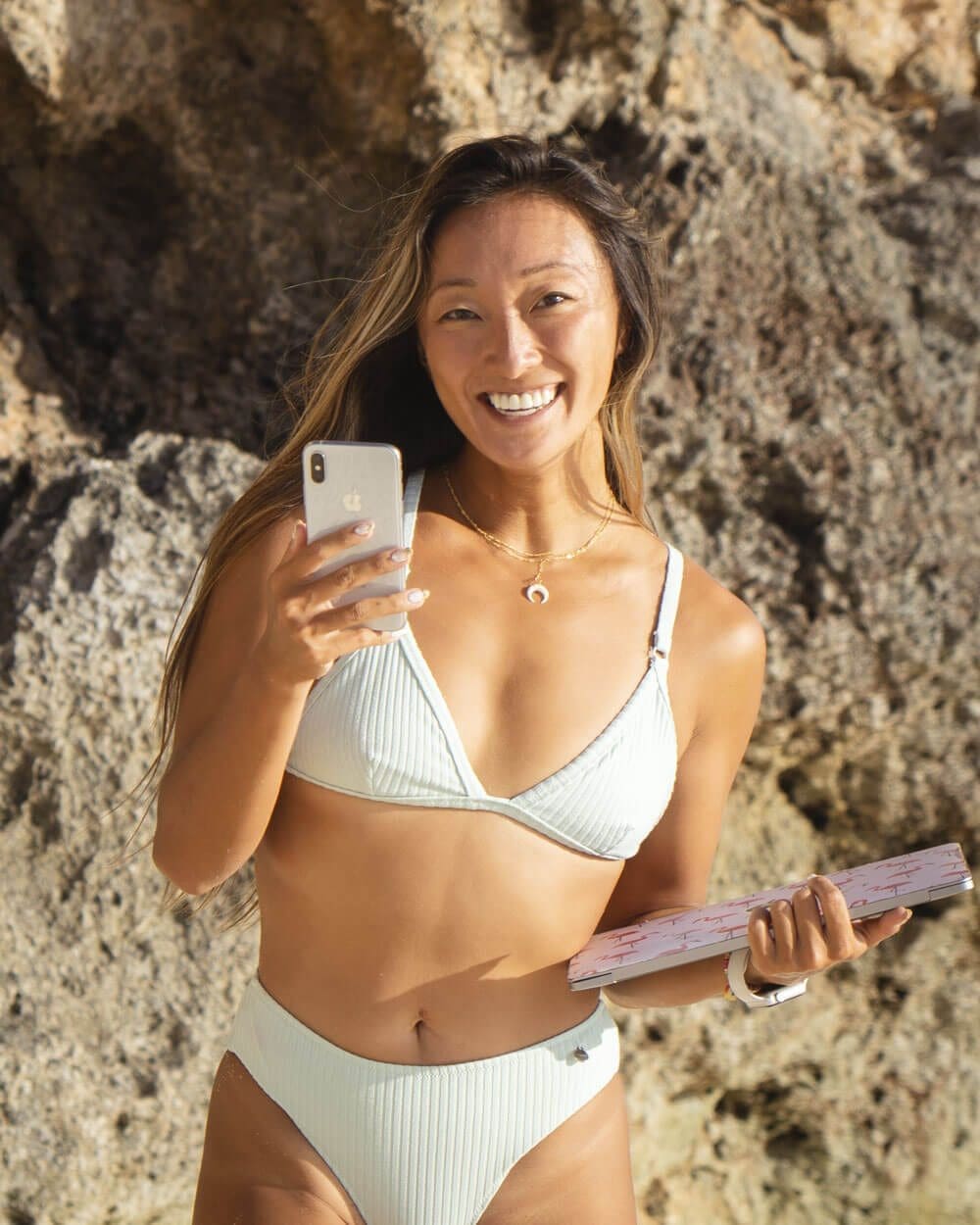This week we talk to travel photographer, videographer, content creator and producer Amy Seder from Away lands. Amy is a New York native now based in California, but travels the world, shooting hotels, destinations, fashion, and lifestyle with her partner Brandon.
In this episode we talk about
- How Amy began her journey in photography (1:40)
- Her business Away Lands (10:17)
- The future of social media (15:20)
- Income diversification (26:01)
- Pricing your work (31:18)
So grab your pen and paper because this is an episode jam packed with info that you do not want to miss!
Tune in or read the blog version below!
✧ Follow Amy on Instagram: https://instagram.com/amyseder
✧ Check out her blog and portfolio: https://awaylands.com
Quick Links
✧ Join The Wanderlover Coaching Group
✧ Download Your FREE 0 to $100K Game Plan
Danielle:
Hello, my loves. Welcome back to The Wanderlover Podcast, where we talk all about living life on your own terms and bring on visionaries from around the world.
This week, we have special guest Amy Seder, photographer, commercial films, director, and founder of Away Lands. Amy is a New York native now based in California, but travels the world, shooting hotels, destinations, fashion, and lifestyle. Super excited to have her here with us. Welcome to the show, Amy.
Amy:
Hi Danielle, how are you?
Danielle:
I’m good. Thank you so much for being here. Could you please just start by giving our listeners detail into your background and how you got started with your business?
Amy’s Story
Amy:
Yeah. So I’ve always been a photographer. I started taking photography classes back in high school, which was many, many years ago. And then for college, I went and got a degree in photography. I went to a commercial photography program in California called Brooks, which is no longer, but I, I specifically didn’t want to go to art school. I always knew that I wanted to do more commercial photography, so that was something I sought out. And my dream that was always to move to New York and shoot fashion. That was what I wanted to do. So as soon as I finished school, I moved to New York when I was 21.
Amy:
And I was there for about eight years until we decided to kind of that I was ready to not already leave New York, but ready to like move on and travel more. So in my time in New York, when, so I moved there in 2008 in the fall, which was right when everything crashed with kind of no warning warning, I literally moved September, 2008 and like the crash, that’s how I kind of like showed up, you know, finish college, like, oh, did college in three years, you know, it was just like my portfolio and, you know, my naïveté kind of showed up was like, okay, how do I get a job?
And really there weren’t any jobs, everything was crashing, especially print media. So that was a challenging number of years. But there’s no better place to spend your twenties than New York, in my opinion. Ultimately, I ended up working in production and kind of helping, I ran a photo studio and was kind of helping put shoots together. And I learned a lot doing that and I was good at that. And it was really fun for a while, but ultimately I got to a point where it was like, I, even though I could move up in production and that could be a good career.
I just knew that I was never going to be like underneath it. I knew it was never going to be happy and fulfilled, you know, kind of helping other people bring their creative visions to life and not shooting and being creative and doing what I really wanted to do. And it took me a while to kind of find my way back to photography after, you know, a few years, I kind of, I had to kind of put aside my dream of shooting fashion, cause I just felt like it was so especially more traditional commercial photography, pre social media, you know, it’s such a difficult industry. It’s so intense. And it got to a point where I just kind of realized like, if this isn’t your MO or my be all end all, I’m never going to make it.
There’s just a point where it’s like, I can’t take this stress and this guilt anymore. And I was about 25. It’s like, I just need to like enjoy my life for a little bit and figure out what I really want to do because I just feel guilty and stressed all the time. So I kind of found my way back to photography, not, I guess it was, I was always in the industry, but like, you know, after about a year or two sort of started shooting more for fun. I started traveling a little bit and taking photos, just kind of with no rules with no goal, not like working with models and having to deliver to agencies and all that, just kind of for fun. And then I started dating Brandon and we just started from the very beginning, traveling like crazy.
When we started dating, he was living in LA and once we got together, he moved to New York with me and we just started taking every opportunity. We had every three-day weekend and traveling, it was, it was fun. It was, you know, it was finally, I got to a place, you know, cause my first few years I made absolutely no money. So we finally got to a place where you make a little bit of money and you’re like, okay, I’m going to spend all of it on travel and then maximize everything. I spend to get credit card points to get free flights. And that was how we funded. All of our first trips was really a photographer. So Brandon worked in finance, he had a totally different life and it wasn’t really, that was never his like passion or desire.
He just sort of, kind of ended up there. He’d always had an interest in creative and an interest in film particular and just had never really had the freedom to explore that. It was just sort of like, it just sort of all came together very naturally. And we started just very organically and for fun, we just started taking photos. Cause that’s what I’d always done. I’d always loved being on camera. But you know, as somebody, that’s not a fashion model up until social media, there was never really a place for that. We started booking trips, taking photos and videos. And we got to a point where we were realizing we were doing everything on miles to maximize like everything we could, we were booking things like months in advance and we just kind of sat down one day and was like, we’re living for this time off.
And we kind of had a realization in that. Like we knew that we were in a pretty unique position where we were in our kind of getting to our later twenties at this point. But you know, neither of us had student debt, which we’re really grateful for. And there was like nobody depending on us. So we’re like, we there’s no, we just sort of like kind of realized that there, like there’s no reason why we can’t just take off like, you know, and even back then at the time we’re like, should we get married first? Should we wait? Should we like, you know, get to your next level at the firm and all this stuff.
And we just kind of were like, no, let’s just do what we really want to do. And at that time we decided we were going to take a year plan and save. And this was 2015 to 2016. So, well, I was very unlucky with the year that I graduated from college and trying to start my career that way. I do feel like we were very lucky in our timing of starting our company and that we sort of hit at this really great time where things were really starting to boom. And it was still at the beginning, we started way lambs as more of like a commercial photo and video production. That was kind of always our major goal.
And the social media side just sort of came on after it did have a blog. That was something that I, there was also just something that I’d done forever. I’d always been deep into the internet. I always had live journals. I was like teaching myself to code in like the sixth grade in like 1999, like very, very early. I’ve always been very involved in internet and early internet communities. It’s just something that has been a part of my life. So that part came, but like with things like Instagram, I, when we were starting out, I had absolutely no idea what kind of doors that would open.
And even like, as things were growing, had no idea and no plans to be like, oh, this is going to be my full-time thing. Right. And this is going to be what we do. Cause that just sort of was like, I started kind of posting everything. I had an Instagram and trying to like grow a following there more of as a way of we’re working so hard on these videos and photos, like how do I get more people to see them? Like I had no idea that there was money there that like the opportunities that could come and that just sort of all happened overall. I’d say the one thing that really like helped make us was that we started this all out of a passion for traveling and creating and film and not in pursuit of, oh, I just want to be big on Instagram.
Danielle:
Yeah. Yeah. And it sounds like everything that you were passionate about, it all came together. When you guys just got rid of all the pressure to perform, to meet deadlines and you honestly just took what lit you up, which was travel and creativity. And you were really open to the different platforms like Instagram and like collaborations and everything that you do now. It was so new back then. Right. But you went in with this sense of curiosity, not like, Ooh, I could never do that. But more like, let me just share from the bottom of my heart and see what comes from it. And that’s when all these opportunities started opening up.
Adopting A Business Mindset
Amy:
We did also go into it, very business focused. Cause we like, we quit our prior jobs and left New York at 29. So it’s different than, you know, at least for me that was very different from being like 22 and being like, I just want to do whatever. We’re sort of like getting into adulthood mean to have like a plan here. And we were, it’s a mix of like fortunate and prudent enough that we started getting jobs very early on. And we like filed our like business LLC paperwork, like before we, even before we even left New York. So there was things that we did that, you know, we’re very business-focused but I feel like even in those beginning I had no idea what exactly that business would be or where that would go, oh, we started getting a few jobs very early on before we’ve even left New York. And it was like, okay, this is happening. This is real. How do we make this? How do we make it loud?
Danielle:
What were some of the things you did in the beginning that positioned you guys as a business rather than just like a, for fun side hustle?
Amy:
I think we always went in and you know, we started, especially with video, like I had a background photo, as I said, but in video we went into it knowing hardly anything. And so it was before like our first, I think our first couple of videos are still online and like, remember getting home and being like after filming, like one of our very first trips together, just being like, how do I, how do I make it? Slow-mo like, what is a frame rate? Like I knew absolutely nothing, but what we, what we did, I feel like was not presenting ourselves in a way that we knew more than we did, but we did do a lot of, we did a ton of research and invested in a ton of gear, not a ton, but you know, a good camera, a good stabilizer, good lenses.
Amy:
This was like very early on in drones. God, I miss those days, like we learned to fly drones because we were living in Williamsburg on the waterfront, like back and forth across the east river, like back in 2015 when there were no rules.
Danielle:
Oh my God.
Amy:
Like, why did we never like take, take it to like times square and like shoot it off. Like the rooftop of my office building and like get all this footage that you just can’t get anymore. It was the things that we used to do. So it was so fun in the beginning. I think we just sort of like always, you know, presented are built up, built a website. It was like saying, you know, this is what we could do and kind of presented ourselves as this is us. This is what we can do. And there was a lot of interest in that.
Danielle:
Yeah. And it’s crazy to see how far you’ve come. Like within the past decade you went from not knowing anything about video at all, to like producing these incredible ones for big names around the world. And just that this is that you’ve built for yourself. That’s amazing.
Amy:
Yeah. Well the decade makes it sound long. Yeah. It’s Brandon. I haven’t either but eight and a half years now. So it has really, it has added up over time.
Expanding To Other Platforms
Danielle:
And one thing that I’ve noticed with you as I’m like following along your life on different platforms is how still open and receptive you are to new ways of doing things and new platforms. So I just personally love how you so easily transition from like photo to video, Instagram photos, to like TikTok videos and do so in a way that’s so fearlessly, authentic where anyone that goes on your page, they know exactly what you sound like, what your personality is like, what kind of business you have. I love it. The energy is great.
Amy:
Thank you. I’m I’m trying, I feel like transitioning over to TikTok was slow and you know, I feel like everybody right now is saying, man, I wish I would have like gotten further into it and like 2020 or like is it was so I feel like the, you know, earlier days it still feels like early, it still feels like it’s very much growing platform. Like the earlier days were so like chaotic and you could have like one video. I didn’t, but I know other people that had like one video get like 20 million views and they got like 200,000 followers like overnight. And it’s just like the type of chaos and growth that doesn’t really exist anywhere else in the internet. So that made it fun.
Amy:
But part of you really, it definitely took a while to sort of figure out and I still, like, I’m still kind of like throwing shit out there and figuring out what exactly works, what tracks, what I like to do. What is a good way to share the information that I have. And I always described TikTok as chaos. It’s just like, it’s a very chaotic platform and part of it. And that’s like part of what makes it fun.
I feel like there’s just, you know, there’s certain things that make platforms great. And then I feel like Instagram is, I mean, everybody, I feel like has had pretty much the same opinion that the way that Instagram has pushed over the last few years to try to like catch you up has really done it. A detriment. Like, I feel like everyone is doing reels because they have to, not because they want to. And it’s like, I’m having so much more fun making stuff for tick-tock that I don’t even post a reels or if I do them, it’s just like, it feel where it feels authentic there. And I’m like, I’m just going to make let’s. Cause it’s fun. It’s what I want to talk about. Whatever. It feels very inauthentic in Instagram.
And I feel like a lot of people have that same experience. I feel like it shows Instagram is forcing people to chase this inauthenticity, which is the opposite of what made social media good. And there’s, you know, there’s great and terrible things, but everything and there’s great and terrible things about social media. But there, I do really feel like there’s a lot of great things that have come from this.
Danielle:
It sounds like there’s definitely an opportunity for a new platform that can bring back the authenticity, the profiles, like all the features that are just dying away.
Amy:
Yeah. But it’s, it’s hard. I feel like there’s a million platforms that came up and tried to like, you know, there’d be like, I feel like her be a few minutes where people would be talking about one platform or another, but to go like, get an invite for this, or you gotta get on this. Or there was that, that one with all the audio rooms, like Early COVID like, there’s all this stuff that would like come up a little bit, but nothing like it’s, it’s hard to take a foothold and until TikTok, nothing new and taken a foothold in five years, eight years like Snapchat, but that skewed much too much younger. I feel like the only people I know in Snapchat are like my like 18 year old cousins.
Being Adaptable and Staying Relevant
Danielle:
So do you actively seek out new platforms? Like when all of these trends roll around, do you take it upon yourself to give it a try? And my second question off of that is how much of your time in your business do you dedicate to social media and the platforms and figuring all this out and how much time do you work in your business?
Amy:
Okay, let me answer that a little bit. One. So I try to stay up on platforms to an extent, because I feel like if you like the second that you start saying, like I’m too old for this, like, I don’t want to explore this. That’s like when you start to like burn it, that is when you start to get too old for it. And you want to, like, I feel like most of us don’t want to age ourselves out of things and like, you know, explore, there’s certain things that you’re just not going to be into and aren’t going to serve you and don’t have, you know, I feel like I don’t know anything about Twitch, absolutely nothing about that. But you know, I feel like it’s, it is important if you want to stay current to at least know what’s happening and at least explore it somewhat and be open to change.
One thing that was really challenging with all this move to short form video short form video is we’ve spent so much time and effort really building up professional, not long form video, but two-minute video seeing that this like, you know, beautiful cinematic, like professional video did not translate to like two reels or TikTok or a lot of like, you know, like what maybe translated to earlier YouTube, but less seeing that not translate. I feel like it’s challenging shit. Okay. I’ve spent the last, you know, six, seven years of my life, like learning everything about video investing in this like amazing year and like learning so much dedicating so much to this and everybody just wants the iPhone.
It’s just burdened. And then it’s sort of like an internal challenge, a little bit of like, what do I even want to beat? You know, I feel like in the beginning, you kind of like you put your stepfather that you’ve worked really hard on any kind of like, just like throw a fun. I mean, like, I don’t even want to be here anymore, like this isn’t right. But you see, you have to, you have to learn to adapt if you want to continue on, you know, but I’m curious how TikTok is going to translate. Cause people have built up these huge followings there and have built up this entirely different kind of content library. But I feel like my prediction right now is it will have a shorter life span than perhaps Instagram, because what I think worked really well on Instagram and YouTube was to an extent was like high production value, high quality photos, high quality video.
Like if we succeed talked about like Instagram, high quality photos really drove the platform, right. And that led to, I think that was much more translatable to usable assets for brands. You know, things for people that were good at Instagram and good at doing high quality photos, you know, you could take some of those photos and put them on a brand’s website, use them to highlight their products or a hotel or, you know, destinations. There was a lot of high quality work that translates to commercial work where pick, talk, I do see drives sales, which is great from like a brand perspective.
Like as somebody who’s always worked in like advertising and media, I like to see myself with somebody that’s not super susceptible to advertising and I have bought so much shit off of and then I’ve seen it in myself when I share a link to something and like translates to way more sales than, you know, or with a much higher ratio than I’ve ever seen on Instagram. So in that way it is working, but I’m curious where it’s going to go, what skills are we using and what what’s the longevity.
Danielle:
Yeah. Like how do you translate that into something more sustainable, bigger than yourself?
Amy:
But then when other question, so I don’t don’t really see it as like, at least for me also, I feel like my I’m more, my brain is more chaotic, but of like, oh, I’m spending, you know, I spend this much time on this platform this much time on this social and this time on like business, it all is sort of, it’s all sort of swirly together. But also that’s probably my biggest detriment is I is learning how to like properly time manage and delegate and organize. That’s like, that’s always been my biggest fault or my, my, my fatal flaw in all of this.
Danielle:
But you get shit done.
Amy:
I try so hard.
Danielle:
It seems like you have everything together. You were like omnipresent on all platforms. You do so much off of social media too, which is insane because you do so much on social media. So I think there’s a lot to say about your work ethic. Like however way you work, it’s working.
Amy:
I try to just keep, I feel like I’ve never felt like I’ve actually completed a to-do list in about four years. I think that’s also been a huge part of how we’ve been able to continue on and the work that I get or that we get together is it’s always been somewhat diversified or I feel like, you know, if I was surviving just on like sponsored posts, Instagram money, like we would be done by now. Like that’s not at least for some people, I’m sure that that’s still growing great. Like for me, that’s nowhere near where it was pre COVID. And that’s just the reality of like those types of sponsored posts, those types of like, especially one-off like, oh, here’s a campaign. Do a post get paid end.
Like that is not, and never was the bulk of my income, but for awhile, that was great. And you know, it’s, I feel like that’s something I’m sure you tell people all the time is like, you want to have multiple revenue streams and you want to diversify or just like have a bigger focus.
Diversify Income Streams
Danielle:
Yeah. It’s a way of thinking outside of corporate or like being an entrepreneur, it’s just the nature of needing to diversify. Think of new ideas, be on top of trends. And I think it’s scary and exciting at the same time.
Amy:
No, absolutely trying, trying as silly as it sounds sometimes, like, I feel like, yeah, trying new things is scary. Like posting like silly things on TikTok to me was scary. Like I don’t do like, you know, I feel like everyone’s like default from couple years ago. It was like, I don’t do a lot of like dance trends, but the more that I get into it and participate in like the trends, some of it, some of it’s really fun. It’s really fun and really entertaining. Yeah. That was scary. It was like, I’ve always done things. So, you know, I’ve always been a photographer. So Instagram was a very easy transition for me.
Amy:
It was like, I’m taking these photos anyway before they were just on tumbler or they were on flicker. Like I would, you know, I’m, I’m 34, but a date myself here with like, it’s like I’ve been taking photos and posting them on the internet since 2002, like I took my first, I took my first digital photography class in 2002. Like it’s, I’ve been doing this for 20 years.
Danielle:
So I’m curious how have your product and service offerings, not only Away Lands, but just in general, how have they changed over the years? And if you don’t mind sharing, like how do you diversify your income streams present day?
Amy:
Okay. So one of our biggest income streams is the sort of hybrid photo and video and often social PR projects. And so that’s something that we’ve really found a great niche for. And so sometimes it’s like a, I guess there’s two ways that like categorize this one would be these like a bigger social products where it’s like, we’ll go to a, you know, a hotel or it’ll be a tourism board. Those are our biggest or most common clients. And it’ll be doing video for them photo for them as well as social promotion.
And so sometimes a full package will be Instagram posts and a blog post. And, you know, some people are wanting TikToks. Now, some, they just kind of add that on a lot of, especially more old school brands. I don’t think I’ve seen the value in that yet, but you know, these social posts as well as delivering photos and videos for them to use. And so that’ll be just Brandon and I going out and shooting ourselves and doing those projects where we’re shooting and, you know, being on camera and doing all the work. And so it’s not just, you know, okay. Here’s like, bring me out. Here’s my Instagram stuff. Bye. It’s like doing this more work for them.
And these assets that live on for a few years, and that’s been kind of one of our biggest ways that we have made money over the years and like some of our more valuable projects. And then the second way that’s sort of like that is similar, but when we’re shooting other people. And so when we were bringing out a CACO and that’ll be more of those will tend to be a little bit of a bigger production and we can just do more because it’s being on camera and shooting and doing production and styling and doing creative and doing art direction is a lot of work hard.
The Work Behind Social Media
Amy:
And like, I’ve, let me just, this is like my soapbox here. I’ve been on all sides of the photography industry. I seen how much people shit on social media and especially in the beginning. And you know, it’s still like, there’s this constant conversation about influencers don’t work. Social media is not real. It’s not a real job. Like I’m sure like people that are listening here are much more familiar with this world, but I’ll say it anyway, like as somebody that has worked in this industry in every capacity, this is so much more work. Like we go all the way up to where Brandon and I will direct full production commercials, which are much more challenging to get we’ve bid on many more than we have actually one which is very normal, but where it’s, there’s an ad agency and a production company and a client like the type of commercial, you would see shooting on the street where there’s trailers and craft service, like, you know, catering tables and a hundred people and stylists.
And this whole thing, like we’ve done a couple where we’re directing this and there’s a lot more pressure. There’s a lot more prestige and being in this position, but let me tell you doing work or we’re shooting ourselves in doing everything ourselves is so much work. And I think that’s part of why Brandon and I has found is like a great niche in doing this commercial work for travel. Cause we don’t like having, having help. The more help you have, the better things turn out. If we have a stylist on a shoot, things turn out better. If we have like one assistant on a shoot, things turn out so much better, but we’re able to do, if we have to everything just Brandon and I, or what’s better as Brandon and I filming other people.
Amy:
Yeah. And you know, the production cost is so much lower than having like a production company, commercial that, and we just, we get more done in a day. There’s just less moving parts. You know, it works better for travel or like we just shot this big project in Hawaii last week. And it was a ton of work, but we had, you know, people in the hotel were really helpful with production. They had a stylist and help the pair and makeup. And We had a cast of four people and like, we’re able to shoot a ton in three or four days and, you know, overall at a much lower production cost than it would be to bring out a whole team.
Pricing Your Services
Danielle:
Yeah. For creators and creatives in the beginning when you were just starting out or even now I feel like pricing your services in this industry is not so transparent that time. So when you’re introducing…
Amy:
The hardest question!
Danielle:
When you are introducing a new service or when you’re, when you just got into video, how did you navigate pricing?
Amy:
Honestly, a lot of pricing is throwing shit at a wall. It’s just, it’s very challenging. There’s no real rules. Like I feel like with social, there’s like certain things that we’re starting to kind of get to be more established of. Like, you know, I feel like there was like the, like, like the good rate for like posts was like, you know what that was in for every a hundred thousand followers like that. There’s starting to be some of a little bit it’s pricing is very, very challenging. There are still times where we’ll put together a full estimate and people will approve it right away.
Amy:
And you’re like, oh, well then I probably should have asked for more money at all. I’ll be like, oh damn, we probably like, or we’ve done projects. The one like, oh yeah, everybody else bid double. And you’re like, well, thanks for telling me like, and then there’s sometimes when you put in a bid for a project and there’s like, oh, that’s too much fine. You’re like, well, you can tell me what you like, what your is available. So it’s very, very challenging. It has always been challenging. I mean, when things come in, you don’t know if they’re expecting, took a thousand dollars or $30,000. Like sometimes you just have no idea what people’s budgets are.
Amy:
I don’t really, I don’t really know the answer to that question. There’s, you know, I’ve heard people say like, you know, you calculate how many hours that something will take you and what your like personal hourly rate would be, which obviously freelance that’s higher than if you were working full-time and you have, you know, whatever I’m making X amount of dollars an hour working certain number a week. A certain number of hours a week is different than like freelance, because there’s so much like downtime or yeah. But…
Danielle:
There’s no secret formula. There’s no secret sauce.
Amy:
I don’t think there, if there is someone hasn’t told me. Also travel is challenging. I feel like because a lot of people come in offer nothing in terms of right. Little like, oh, well, like, you know, you’ll get emails. That’ll be like, oh, we have this amazing like trip. Do you want to come here and do this and this and this? And you’re like, okay, but do you have a budget? And then sometimes they’ll, you know, they’ll write back and be like, oh yeah, actually send us in us. Like, it’s like, they come in to see if you’ll say yes to doing it for free. And then sometimes they do a real budget and sometimes they don’t and you know, it’s like, we’ve all done. I feel like we’ve all done, unpaid press trips, you know, because we’ve all, pretty much everybody got into it for a love of travel.
Amy:
And there are certain things that we’ll still do. You know, just for the experience. I feel like that also comes to, like, if I’m playing, if I’m planning a trip and I’m reaching out to you, if I’m reaching out to you like X hotel being like, I’m going to be in Greece, like, would you like to collaborate? Then I don’t expect to get paid for that. Right. That’s sort of like, do you want to work with me? But if they come to me and say, Hey, do you want to come to Greece and do this work for us? Or, you know, collaborate with us. It’s like, okay, well, is there a budget there? Right. So I think that’s also a big, like, I don’t feel like most people can reach out, be like, Hey, I’m coming here. Like, do you want to pay me to come here?
Amy:
But at the same time there is, you know, there’s always more you can offer. So, you know, it’s like, Hey, I’m coming here. Do you want to collaborate? And like, yeah, can we have like 30 photos using our website and be like, well, I can charge you for that. Sometimes, sometimes that happens. And sometimes that works out great. And sometimes it doesn’t, but you know, there’s, there’s ways, you know, you don’t want to give away everything, but there are certain times when I feel like you can’t expect to get paid.
Danielle:
Yeah. Experts tips. And negotiate.
Amy:
Oh, yeah.
Danielle:
Have the discussion.
Being In Front Of and Behind The Camera
Amy:
One of the challenges that I really have over the years is kind of like feeling like I should focus on one avenue instead of two, because there’s the me on camera, social side, Instagram, all of that side of things. And then there’s the more commercial side of things. And while they do there is so much overlap and there is so much that can be done together. They are two very different avenues and very different kind of goals. And it’s something that, you know, Brian and I have talked over endlessly of, okay, is there a point where we need to choose?
Amy:
Like, do we need to, but I do really love to do both things so much. And like, so part of me is like, I feel like I can never give up doing this commercial photography work, but I also am very much not wanting to give up the social side. And you know, for me being on camera is, is a dream. It’s something that, you know, I love since I like every photo of me, like three years old, it’s like, you know, and there was, and I do think one of the huge powers in social media is there was no place for anyone on camera prior to this, that wasn’t like a model.
Amy:
And like, I’m, I’m five, four. I’m not, you know, I’m definitely not 17 years old. So like that type of there was no place for me on camera and people like me on camera. And now that there is, and it’s like really interesting and like, okay, now it’s like some, not some of the ads that were in there, like on broadcast or like go to print, you know, it’s like, or like magazine covers and I’m like, that’s not model. That’s just a, that’s just us. It’s just like, we’re in. And I, and these two, like, you know, us too, like dorks that started this on our own. And I feel like that. And you’ve seen a lot of like more people from more influencers and these like big modeling campaigns who are older, who aren’t as well.
Amy:
Of course, there’s, you know, there’s always going to be people that are just inhumanly beautiful. And I would never be somebody to say that looks don’t matter just from a realistic point of view, but same time. It’s cool to see, you know, there’s so much more room for women in their thirties now, for sure like us, but I think you’re a few years.
Expert Tips
Danielle:
Do you have any last tips for success for our audience?
Amy:
I feel like, I feel like I could like talk about industry forever
Danielle:
You are an expert. We love your insight.
Amy:
I just have a lot of opinions and also a lot of experience. So I guess in some ways it does make me an expert. Oh, I did. There was one of the things I was going to say when we were talking about types of work, there’s one kind of new project that’s come up for Brandon and I just in the last year, that’s been very interesting is shooting tick talks for brands, which was never something that I thought would happen. And it sort of came up and we have this one amazing client that we work with. It’s kind of a fashion brand. And so we come along to their big, like fo their campaign shoots and with the models and the styles and everybody there, we do all these tech talks and like reels for them.
Amy:
And then that translated to, we got another different client that we did. And another one, oh, fun. That was something that I had know that I did not expect to be a good, different revenue stream. And it is so bizarre to me to show up, to set with nothing but a phone and a tripod and we’re shooting everything on our phones and that’s crazy to me, but so there is like other, yeah. So that’s, you know, and that was, as we were talking earlier, like that’s something that’s new that came up as a great kind of project that also like, you have to be adaptable to like, when somebody read, when they first and client first reached out to us about shooting tech talks were like, well, do you wants to bring our camp?
Amy:
Like, like we can do this on a camera. Like we usually, like, we can, you know, it’s like, we have like a red kid, like we have a whole set and they’re like, no, just her phone. Yeah. And so the first couple times we were like, what the hell do we do? And then like got a, gotten the flow. Yeah. So just sort of being adaptable and like us being up on like changes and everything is, you know, helped with getting that like very consistent client where it’s like, you know, now it’s like, when I’m going through tick talk, you know, and night in better ever. I’m like, you know, you can see like, oh, this might be a good one for them. This might be a good one for them. And it’s sort of like, and it’s something that I feel like has always made sense as so much content change to be viewed in social media, including like very large advertisements.
Amy:
It’s like, instead of trying to get old school directors that are used to everything being, you know, straight TV, 30 second commercials, get people that know social media that know what’s works on social media and can answer your question.
The Power of Blogging
My one thing that we didn’t talk about at all, I’d say there’s still a lot of power and a lot of income to be made in having a blog and understanding a blog and the longevity of that versus, you know, a social media post that, you know, goes up for a few days. And then even if it does really well, like it was that for a few days and then sort of like dies or like blogs last for years. And that’s something that I’m always trying to upsell on social project projects.
Amy:
And it’s something that always kind of got a little bit neglected. Like I feel like for me, my blog was always like, even for a lot of people, it’ll, it became like one of the last things on the list. Cause you have your daily, you have your emails, you have like the work that has to get out. You have like your daily stuff. And then if it’s not like as part of a project and a requirement, you’re like, oh, I’m going to do these other blogs. It always, I feel like, kind of fell into the last of the list, but it is some of the most…
Danielle:
Powerful.
Amy:
It’s. Yeah. And it’s, it has, I feel like just such a high ROI when you get into it, when you find what works for you and what works with SEO and works for SEO is in, you know, getting to the top of Google. So people see it. And then what works for like affiliate is like, it’s insane. How much money one blog post can make, like over years, like I have a couple that are seasonal that just every, like every winter it comes back around and makes money and I don’t do anything. And I mean, I do like it’s a lot, it’s a ton of work to build it up and it took years to get to that place.
Amy:
And it definitely can be done a lot faster if you focus on it. But I feel like a lot of people keep are like, people have forgotten about how powerful blogs are. And I feel like there’s a resurgence in that. Especially if you’re doing photography and, or focuses more on photography and you feel like it’s not getting seen on Instagram.
Danielle:
I was just reminded my blog definitely needs a makeover.
Amy:
Yeah. And it’s, it’s just, you know, it’s something like if you’re doing, like, I think like, you know, as like listeners, like think about it, like if you’re doing research, if you’re doing travel research, if you’re looking up packing lists, it’s like, whatever, you might be searching online, even like, you know, how do I use this serum? Like, what’s the best push-up bra? Like where should I go in Italy? Like all, anything that you’re Googling most of the good results that you’re getting are from blogs. Like it’s not so much travel publications or like I’m specifically talking in travel because I feel like so much of us do, like, it’s like, you’re doing travel research online.
Amy:
You’re figuring out where you want to go for the summer. Like, you’re like, okay, I’m going to, you’re saying, okay, I’m going to be in France. Like where do we want to go in France? Like, what’s a cool place to go. What’s something that people might not know or, you know, whatever. How do I get from here to here? It’s like, there’s certain travel publications that will come up that still do a good job. You know, if like Conde Nast, traveler and travel and leisure. But so much of what you’re getting are just people’s personal blogs. And there’s so much, I feel like have the best information of what is out there. Just that it’d be like one of my ways don’t sleep on it. It can be a great, it can be a great outlet. It can be great. You can tailor it to whatever you want.
Amy:
It doesn’t have to, like when you’re, when most traffic for blogs comes in, either from Pinterest or from Google for most people, unless you have like, just tons of people clicking through your socials, like posting things on Instagram, but that’s typically not the biggest driver of traffic. So it’s like, you can sort of post about whatever you want. Like there’s a lot of search for it. There’s blogs. I posted literally five years ago that are still at the top of Google that I haven’t touched in five years. That just still like, you know, if you get, if you get advertising on your blog or affiliate, like just make money while you’re not doing anything, you have to like, it’s definitely work. It’s definitely work to get there. But then once you get it going, I was trying to think of something else. I’m just like focus one, focus on what you’re passionate about and what you really like. Those are the whole icon. I could go on a whole other, I just feel like I see at least, I don’t know if maybe it’s like the TikTok algorithm I’m in, but so much of like, just like, I get so many videos of just like, oh, just start filming.
Amy:
And this can be your full-time job. You’re like, but can you do this for me years? I feel like so many people like got within social media that like, you know, I kind of came up with, because I’ve been in this world for so long, like kind of either got burnt out or just like, got to a point where they couldn’t do it anymore. Shifted, got regular jobs, which is no, no like shade, like how they like having a regular job. Like I’ve had years of having like nine to five jobs and there’s a lot about it. That’s not bad at all. Like doing everything for yourself is it’s a lot of pressure and it is challenging.
Amy:
And you, I feel like what it really comes down to is if you’re, you have to be passionate about what you’re doing and you have to really care about it and have something to say. And I think there is a lot to say, but I’m getting into something for the right reasons, or at least like finding an angle and a passion that’s unique to you in some ways. So it’s just sort of finding like, there’s definitely, as we’ve seen with tech talk, there is so much room to grow. There is so much room for so many people to like, make a living in social. Every things are changing constantly. You have to find passion and it’s not like my, you know, it’s not like I have some massive altruistic vision.
Amy:
Like all I’ve really ever wanted to do with my life is take beautiful photos. Like it’s not, it’s not brain surgery. It’s not saving the world, you know, but I’ve lasted at least this long because there is my real passion has been in creating and sharing. And I mean, I felt like I made up my dream job. Like I was a child actor. I’ve been doing photography since I was 15. And I was like a huge internet DOR teaching myself to code. So being able to like put all of this together and then also have a place to like share the things that I have to say, like, to me, it’s been a total dream.
Amy:
And like, I never would be somebody who like, oh, I can do this, but you can’t do this. It’s just like trying to be realistic with the reality of what goes in behind it and how much work and just pressure. And that’s, that’s the hard part for me. It was just like constantly feeling like I never get enough done, no matter, no matter how much you do, like when you own your own business, like you could work a hundred hours a week. Like you could work, you know, 12 hours a day, seven days a week, and still feel like there’s more that you can do. And so it’s like trying to find that balance between work and like the fun of life and like what you’re working for. And to me, like, I love like when we’re traveling, like I could shoot nonstop.
Amy:
Like I don’t mind, like, I’ll get up early. Oh, shoot. All day. I’ll do like a hundred outfits. Like, I, I love it. But then there’s everything else that you have. And it’s like, yeah, to be successful. It’s like, there’s a part of, you know, you have to follow up with clients, you have to do marketing, you have to negotiate contracts, you have to do taxes. Like there’s all of that other stuff,
Danielle:
The business side of creativity,
Amy:
Or just marry somebody that used to be in a, in a professional tax role. That helps.
Danielle:
Well, thank you so much for coming on the show and sharing your story. It’s just amazing how you’ve been able to align your passions, your interests, your expertise, and create this beautiful brand with the love of your life. I’m sure the audience got lots of information from the subject matter expert and we are so grateful that you were on the show and shared your story.
Amy:
Thanks so much. If you, you know, have another few hours, I could talk about this all day.
Danielle:
If the audience wants to connect with you. Where can they go to find you?
Amy:
Okay. You can find me at awaylands.com It has our, my blog and our full portfolios. On Instagram it’s @amyseder and that’s Sedar is S E D E R Seder for you fellow Jews and TikTok is the same.
Danielle:
I will link all of that in the episode description, but Amy has been a pleasure. And thank you so much.
Amy:
Yeah. Thank you so much, Danielle!
Danielle:
Have an amazing week guys.
If you’ve enjoyed this episode, it would mean so much if you could leave a review on Apple Podcasts. This helps us spread The Wanderlover mission to those who need a dose of inspiration today.
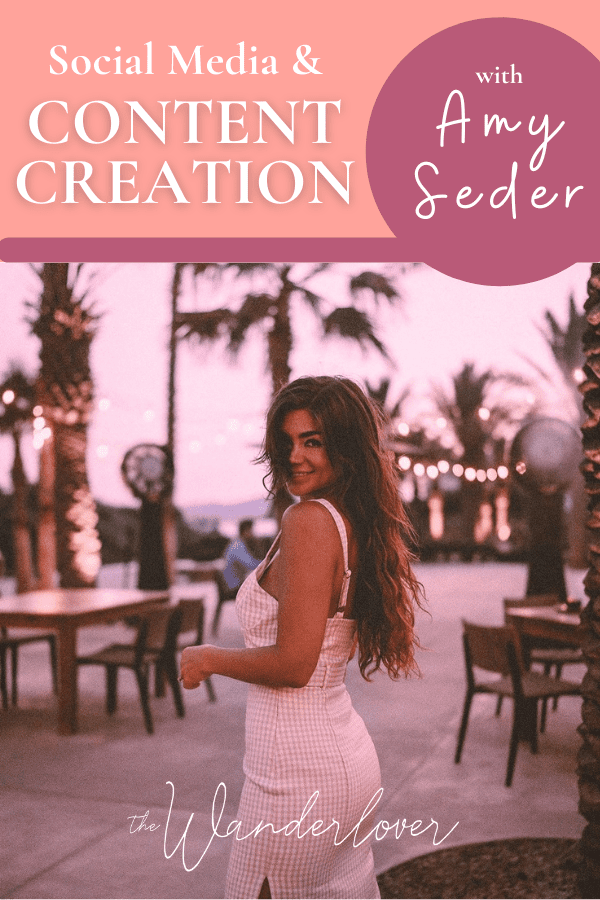
Read Next
How to Start a Travel Blog: Become a Travel Blogger and Make Money Blogging
So You Want to Be a Content Creator? Here’s All You Need to Know
How to Land Paid Brand Deals as an Influencer
What to Do When Your Followers Copy Your Content
88 Nature Beauty Captions for Instagram
How to Become a Travel Influencer
101 Adventure Quotes to Inspire Your Next Travel Adventure
5 Social Media Platforms that Pay Creators to Make Content
How to Work with Hotels and Aligned Brands
How to Get More Followers on Instagram
